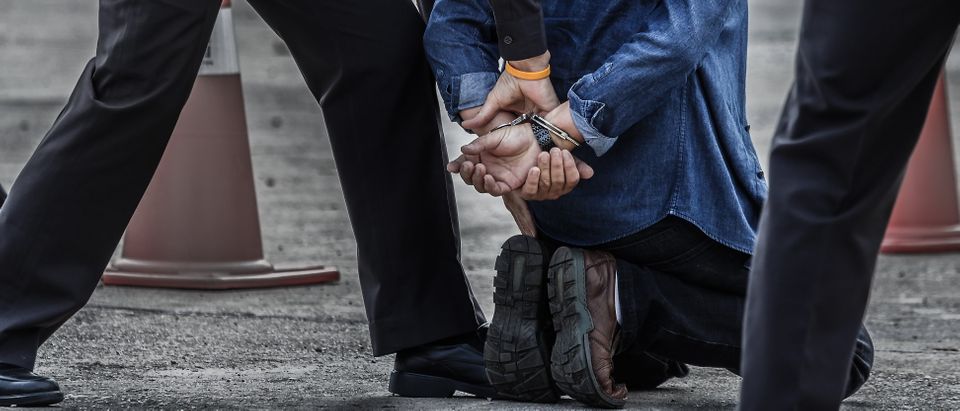Florida resident Cesar Sayoc now faces a slew of criminal charges for mailing about a dozen potentially explosive devices to high-profile Democratic politicians and liberal supporters.
Last week, Florida resident John Goedtke was arrested and charged with three counts of DUI manslaughter, felony vehicular homicide, and leaving the scene of an accident after he plowed into a crew of lineman working to restore electricity up in the panhandle. According to news accounts, Goedtke had 27 prior arrests on charges including drug possession and domestic battery.
Florida resident Shannon Short was arrested over the summer and charged with aggravated manslaughter of a child and child abuse with great bodily harm. She reportedly told her boyfriend to “mess up” her two-year-old son after he broke a plate. That was just one incident in the sheer torture that the young boy suffered with the knowledge of his own mother, who would reportedly receive videos of the abuse from her boyfriend.
All of these people are, of course, considered innocent unless and until proven guilty in a court of law. But they have something else in common, too. Even if convicted of any of these serious felonies, they will benefit from Amendment 4 and have their voting rights restored, no questions asked, after completion of any sentences.
Of course, the backers of Amendment 4 won’t tell you any of these stories.
They naturally want to focus on the feel-good stories. And there are some. But let’s not pretend that those stories are truly representative of the 1.5 million convicted felons in Florida who would have their voting rights automatically restored if Amendment 4 passes.
The amendment excludes people convicted of murder and sexual felonies, but there are plenty of very bad people who have done very bad things that would still gain their voting rights back if Amendment 4 passes.
Does anybody think those people should be allowed to tell the rest of us how to run our schools, our local governments, or our state? Should these people, who have demonstrated their utter disregard for the law, have a say in creating the laws for the rest of us?
The price that some willing to pay so that a few felons who have turned their lives around can recover their voting rights without having to apply and go through the current clemency process is shocking.
The amendment would help career, violent felons, including those convicted of domestic abuse, child abuse and abuse of our elderly. It would also help the drug dealers who poison our inner city youth and the pill mill owners who have created an opioid crisis that claims lives every day in this country.
And let’s not forget all those convicted of armed robbery, attempted murder, manslaughter, vehicular homicide, carjacking, kidnapping, human trafficking, assault, aggravated assault, battery, aggravated battery and the dozens of other senseless, violent felonies that destroy lives and tear at our social fabric.
Every single one of those felons would benefit from Amendment 4 if it passes.
That’s the fundamental problem with Amendment 4. It treats the most serious felonies, short of rape and murder, no differently than a felony shoplifting conviction or a bad check charge. It treats a repeat violent felon who’s shown no remorse and no inclination to change just the same as the guy who messed up once and then did everything in his power to get back on the right path.
The backers of the amendment say that pointing these things out is divisive and that a felon who has served his sentence ought to get a clean slate. But the people who wrote the amendment drew a line — they chose to leave out murders and rapists. That was a pure political calculation, of course, but it contradicts their absolute “clean slate” moral argument. More importantly, it invites the rest of us to decide whether or not they drew that line in the right place.
If Amendment 4 had been written to apply only to those people convicted of non-violent felonies, there would be little opposition and it would almost certainly pass. That would reduce the backlog of clemency cases and leave only the most serious cases to go through the clemency system.
Instead, they chose to draft the amendment to cover all sorts of violent felons and to restore voting rights with no waiting period after release from prison and literally no questions asked.
That’s too high a price to pay to help the handful of felons who’ve changed their lives and deserve a chance to rejoin society. Don’t be fooled by the smiling faces, the upbeat stories, and the feel-good spin that the big money liberals are putting on this issue. Amendment 4 is bad policy.
It’s bad for Florida. Before you vote, understand what it is you’re being asked to do here. Then vote no on Amendment 4.
Richard A. Harrison is a lawyer and the Executive Director of Floridians for a Sensible Voting Rights Policy, Inc. in Florida. Contact him at info@floridavotingrights.org.
The views and opinions expressed in this commentary are those of the author and do not reflect the official position of The Daily Caller.


